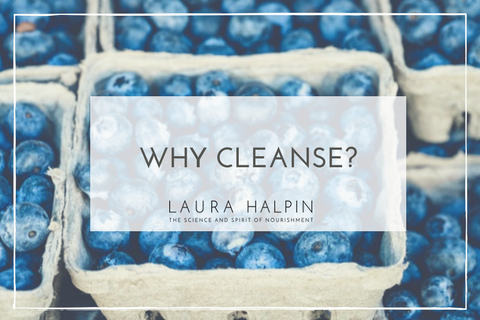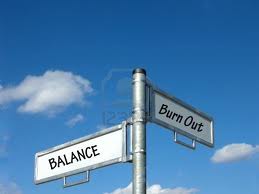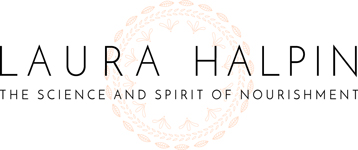
Why Cleanse?
Do you need to detox?
Well, the short answer is yes. We all do.
The long answer…
If you haven’t noticed, we’re living in a toxic soup. Our mattresses are off-gassing flame retardants. Our water bottles are leaching xenoestrogens into the water we drink. Many of our foods have been grown in pesticide-soaked soil. The processed foods we eat contain chemicals in the form of food dyes, preservatives, and flavor enhancers. The air we breathe…well it ain’t just oxygen anymore!
Depressing to think about, but it is important to consider how these toxins affect the functioning of our bodies and brains. It’s even more important to learn how to rid the body of toxins safely.
 The liver works hard to rid our body of toxins, breaking them down into a form that the body can eliminate through our urine or feces. Yet, when the liver gets overloaded, the toxins get tucked away in our fat tissue. Considering the brain is made up of 60 percent fat, toxins inevitably affect the functioning of our brains. Also considering that every cell in our body has a membrane that is made up of mostly fats, the functioning of every cell is impaired.
The liver works hard to rid our body of toxins, breaking them down into a form that the body can eliminate through our urine or feces. Yet, when the liver gets overloaded, the toxins get tucked away in our fat tissue. Considering the brain is made up of 60 percent fat, toxins inevitably affect the functioning of our brains. Also considering that every cell in our body has a membrane that is made up of mostly fats, the functioning of every cell is impaired.
Toxins damage our cells’ mitochondria – our body’s source of energy. Mitochondria is the place where metabolism happens. These mitochondria are sensitive to damage. In fact, a toxic build up can impair metabolism by upwards of 30 percent. We can counteract the damage done to our mitochondria and thus stop the oxidative damage.
The many faces of the body’s toxic burden
If the liver is overloaded, any system in the body can be affected. If you or someone you love has any kind of chronic health issues, including auto-immune conditions, cleansing is a beautiful first step in easing the cellular burden. These are some common symptoms of toxicity:
- Headaches
- Coughs and congestion
- Weight gain
- Allergies
- Sore throat
- Aches, stiffness or swollen joints
- High blood fats

- Itchy nose, ears and skin
- Skin rashes
- Frequent colds
- Irritated eyes
- Immune weaknesses
- Environmental sensitivity
- Digestive issues
- Fatigue and insomnia
- Constipation
- Muffin top
- Moods and anxiety
What if I’m feeling great?
If you’re feeling great, you obviously want to continue feeling that way. I think of the liver a bit like I do the central file cabinet in your home. Every once in a while, no matter how organized you are, it’s necessary to go through the files and discard what you don’t need any more. Once done, the file cabinet functions much more efficiently, and consequently, the entire household hums a happier tune. Likewise, our livers eventually reach a tipping point where a periodic cleanse would ensure continued optimal functioning of our bodies. As we age, we often accept foggy thinking, wider mood swings, low energy and aches and pains as normal. We actually have much more control over our vibrancy than we think we do, no matter what our age. We don’t want to wait for a disease to happen to act. Cleansing can help us recalibrate our definition of “normal.”
So what is a cleanse?
The goal of a cleanse is to lift toxins out of the body and to restore optimal functioning to the detoxified organs, thus the body in general.
There are so many different cleanses on the market. Some involve fasting, some last for two days, five days or 28 days. Some involve lemon and maple syrup. Some are no-fat or involve an entire countertop of products. You’ll find some specifically target the liver, some the colon, some both.
Just as a good spring cleaning cannot be the only time you clean your home, a cleanse should not be thought of as a diet, or a period in which you take on certain lifestyle and nutritional behaviors, only to ditch them at the end of that period. Your body can’t take that.
Toward that end, the cleanse that I lead:
- involves real food at the heart of the process. If the cleanse you choose is based on products rather than real food, there’s a good chance you may not have the tools to eat differently at the end of your cleanse, let alone have new ways of feeding your family.
- addresses the psychology of eating. So often, our eating habits and self-care practices are rooted in self-sabotaging beliefs. For this reason (among many others), dieting doesn’t work. We have to look at how we are with ourselves and learn how to treat ourselves with kindness.
- involves education. We learn about gut health, blood sugar balancing, label reading, healthy fats, cholesterol, gluten, appropriate exercise and supplementation. The weekly sesssions establish a thorough nutrition foundation from which each participant can make informed decisions.
- involves delicious food. We cook together. A portion of each session involves kitchen time — a blur of tasting, talking and applying what we’re learning.

- doesn’t emphasize calories or deprivation. We eat healthy, unprocessed foods. We listen to our body’s signals and discern the difference between hunger and cravings. Mindfulness plays a significant role in developing a healthier relationship with our food.
- emphasizes other non-food means to detoxify our bodies, including exercise, breath work, skin care and self-care methods.
- includes built-in motivation and support. I keep the groups purposefully small and intimate, so that I can support each person as individual questions and needs arise. Each participant has up to three one-on-one consults with me. There will also be an optional grocery store tour where we talk through label reading, best choices, and easy meal and snack ideas. In addition, really smart and interesting people sign up to participate and so the group discussions and support are real and grounding.
If you’re considering doing any type of cleanse, feel free to email me to chat it through. I’d be happy to answer your questions and address your concerns.
You are so welcome to join the group that’s starting later this week. Both the morning and evening sessions have a couple of open spots. Is one of them yours? Click here to read about the specific dates and times and to register.
Come join us and bring a friend.



